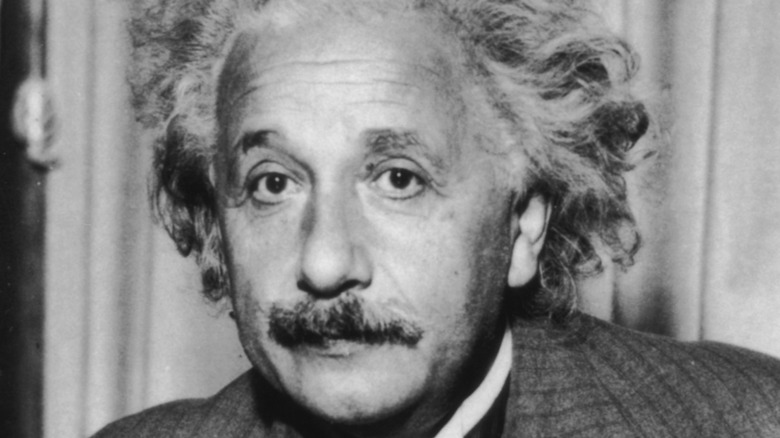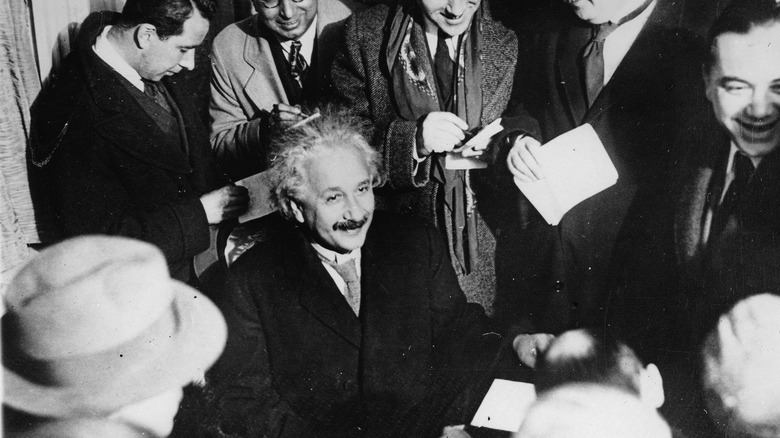Albert Einstein Said This Was The Key To Happiness
Nobel Prize-winning physicist Albert Einstein is considered one of the greatest scientists of all time. His name is synonymous with genius and brilliance. His scientific achievements are as relevant today as they were in the early and mid-20th century and are part of the building blocks of modern science.
From his explanation of photoelectric light, which established the field of quantum mechanics, his general theory of relativity, to his famous mass–energy equation E=mc2, the German-born Einstein created the foundation of modern physics and advanced the knowledge of mass, space, energy, and time (via Learnodo-newtonic.com).
His scientific theories and discoveries are linked to nuclear energy production, GPS satellites, computers, and all kinds of other products. So, it's a little surprising to discover that a genius like Einstein with so many scientific accomplishments was also contemplating philosophical issues such as how to achieve contentment and peace of mind, a so-called theory of happiness, but he was.
Einstein Wrote his Theory Of Happiness In a Note
During a lecture tour in Japan in 1922, the physicist, who had just been told he had won the Nobel Prize, was treated like a rock star. He was met by thousands of admirers at the Imperial Palace in Tokyo where he went to meet the emperor and empress, author Walter Isaacson wrote in his biography of Einstein.
Almost 2,500 people paid to see his lecture in the city (via NPR). Later back at his hotel, the Imperial Hotel of Tokyo, when a courier made a delivery, Einstein had no money to tip him and instead wrote two notes on hotel stationery. Written in German, one note said: "A calm and humble life will bring more happiness than the pursuit of success and the constant restlessness that comes with it."
At the same time, Einstein wrote a second note that read: "Where there's a will, there's a way" (via BBC News). He reportedly told the courier to hang on to the notes because they could be valuable in the future — and they were. The BBC reported in 2017 that the first note, sold by the messenger's nephew, netted $1.56 million, and the second note fetched $240,000. That's quite enough of a profit to make anyone happy.

